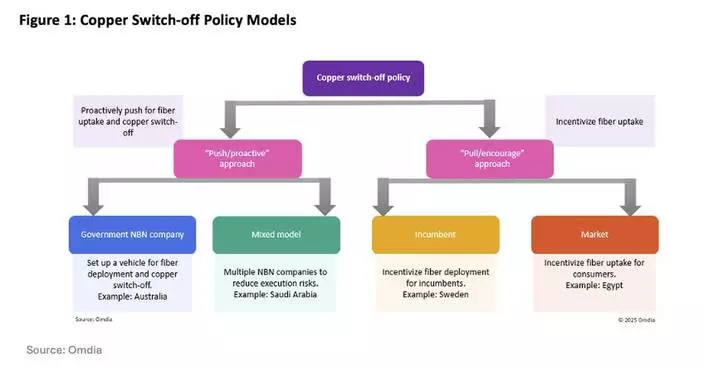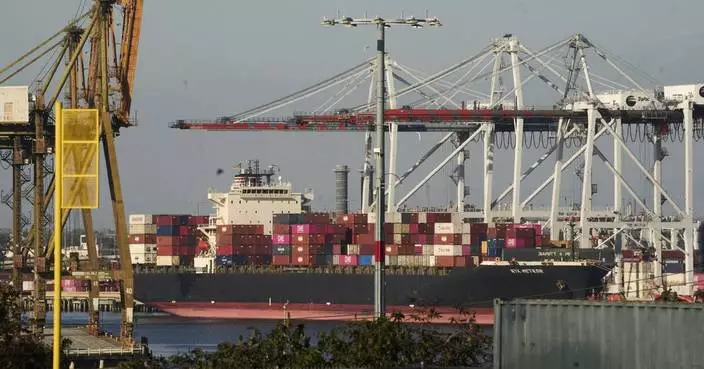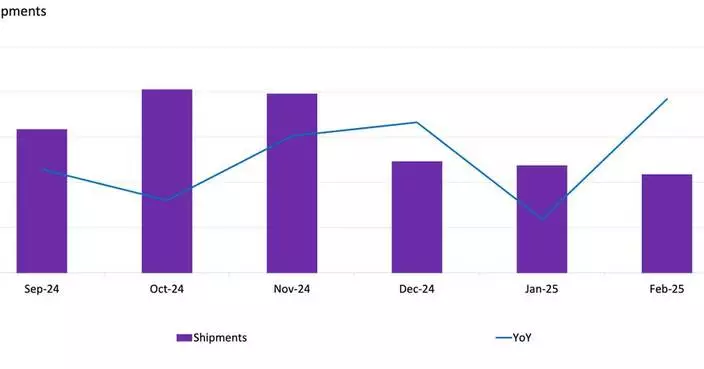PARIS (AP) — One thing is certain for Fabien Galthie’s France this autumn. Nothing is certain.
Since the start of the autumn tests, the coach has not hesitated to leave out established stars, and so far this has worked well. France takes on Argentina in their final test of the year on Friday at Stade de France on the back of victories against Japan and New Zealand.
Stalwart players have been sacrificed this month one after another for the good of the team. Gael Fickou was benched against Japan and Matthieu Jalibert was benched against the All Blacks, then refused to accept it and left the squad. It's Gregory Alldritt's turn to pay the price of Galthie's rotation policy.
The No. 8 was not even in the matchday 23 facing the Pumas after Galthie made four changes.
Galthie reasoned he's trying to create depth and more experience ahead of the Six Nations and more in mind of the 2027 Rugby World Cup.
“There is no polemics,” he said.
The players left out, at least Fickou, did not seem to take it personally.
Fickou joked, “I was a bit cold on the bench. That’s what group life is all about. You can’t play every game. There are also some great players in my position who are growing and who have talent. It’s up to me to be good enough to stay here.”
In any case, competition for places is paying dividends. A year after its brokenhearted exit in the quarterfinals of its home Rugby World Cup at the hands of South Africa and following a summer tour of South America marred by off-field controversies, France is back in form.
Beating New Zealand 30-29 last weekend, with talismanic captain Antoine Dupont aboard in his second test of the year, was a statement that France is a serious threat again.
France and the Pumas split a series in Argentina in July, the Pumas winning the last match 33-25. But the Pumas have not beaten Les Tricolores in France for 10 years.
Unlike Galthie, Argentina coach Felipe Contepomi is bidding on continuity since taking charge. His Pumas have thrashed Italy 57-17 and lost to Ireland 22-19. Contepomi has made just one change to his starters, with Gonzalo Garcia at scrumhalf for fresh legs on Friday night.
“It's a real threat looming,” Dupont said. “Looking at what they have been capable of in recent months, there is a real danger. Winning in New Zealand, beating South Africa in the Rugby Championship is no mean feat."
The Pumas have also been bolstered in the reserves by the return for the first time this month of flanker Marcos Kremer from a knee injury and wing Mateo Carreras, who became a father. They started both tests against France in July.
Kremer and Carreras also are among 10 Pumas who play for clubs in France.
“We have to look at our shirt and from there put it where it deserves, regardless of the opponent,” Carreras said. "The extra spice of it being France gives us that desire to go out and win. The connection in defense is going to be key. We have to keep the ball a lot and maintain discipline.”
AP rugby: https://apnews.com/hub/rugby

Argentina's Guido Petti, top, jumps for the ball during the Autumn Nations series rugby union match between Ireland and Argentina, at Aviva Stadium, Dublin, Ireland, Friday, Nov. 15, 2024. (AP Photo/Peter Morrison)

Argentina's Juan Cruz Mallia, right, breaks away from Ireland's James Lowe, to score a try during the Autumn Nations series rugby union match between Ireland and Argentina, at Aviva Stadium, Dublin, Ireland, Friday, Nov. 15, 2024. (AP Photo/Peter Morrison)

New Zealand's Patrick Tuipulotu, right, and France's Thibaud Flament compete for line out ball during the Autumn Nations series rugby union match between France and All Blacks at the Stade de France stadium, in Saint-Denis, outside Paris, Saturday, Nov. 16, 2024. (AP Photo/Michel Euler)

French players celebrate following the Autumn Nations series rugby union match between France and All Blacks at the Stade de France stadium, in Saint-Denis, outside Paris, Saturday, Nov. 16, 2024. (AP Photo/Michel Euler)
A U.S.-Russian dual national imprisoned in Russia on treason charges was freed Thursday in exchange for a Russian man jailed on smuggling charges in the U.S., a prisoner swap that comes as Moscow and Washington have made efforts to repair ties.
Ksenia Karelina, also identified in the media as Ksenia Khavana, is “on a plane back home to the United States,” U.S. Secretary of State Marco Rubio said in a post on social media platform X. She was arrested in the Ural Mountains city of Yekaterinburg in February 2024 and convicted of treason on charges stemming from a donation of about $52 to a charity aiding Ukraine. American authorities have called the case “absolutely ludicrous.”
Russia’s Federal Security Service, the country’s main security and counterespionage agency, said that dual Russian-German citizen Arthur Petrov was released as part of a swap. Petrov was arrested in Cyprus in August 2023 at the request of the U.S. on charges of smuggling sensitive microelectronics to Russia and extradited to the U.S. a year later.
Karelina was among a growing number of Americans arrested in Russia in recent years as tensions between Moscow and Washington spiked over the war in Ukraine. Her release is the latest in a series of high-profile prisoner exchanges Russia and the United States carried out in the last three years — and the second since President Donald Trump took office less than three months ago and reversed Washington's policy of isolating Russia in an effort to end the war in Ukraine.
Russian and U.S. diplomats are sitting down Thursday for another round of talks in Istanbul on improving diplomatic ties.
In February, Russia released American teacher Marc Fogel, imprisoned on drug charges, in what the White House described as a diplomatic thaw that could advance peace negotiations. That same month, Russia released another American just days after arresting him on drug smuggling charges.
Karelina, a former ballet dancer, reportedly obtained U.S. citizenship after marrying an American and moving to Los Angeles. She was arrested when she returned to Russia to visit her family last year.
The Federal Security Service, or FSB, accused her of “proactively" collecting money for a Ukrainian organization that was supplying gear to Kyiv's forces. The First Department, a Russian rights group, said the charges stemmed from a $51.80 donation to a U.S. charity aiding Ukraine.
“I am overjoyed to hear that the love of my life, Ksenia Karelina is on her way home from wrongful detention in Russia,” Karelina’s fiancé, Chris van Heerden, said in a statement. “She has endured a nightmare for 15 months and I cannot wait to hold her. Our dog, Boots, is also eagerly awaiting her return.”
He thanked Trump and Trump administration envoys, as well as prominent public figures who had championed her case.
Karelina’s lawyer Mikhail Mushailov said she was flying to the U.S. after a prisoner swap in Abu Dhabi, United Arab Emirates.
The FSB said in a statement that Russian President Vladimir Putin had pardoned Karelina before the swap. It said that Petrov, who was facing a 20-year prison term in the U.S., was exchanged for Karelina at the Abu Dhabi international airport with the UAE mediation.
The agency released a video that showed Karelina being escorted to a plane somewhere in Russia and featured of what appeared to be the scene of exchange at the Abu Dhabu airport. The same video showed Petrov undergoing medical checkups on a flight to Russia and saying he was feeling normal.
Petrov was accused by the U.S. Justice Department of involvement in a scheme to procure microelectronics subject to U.S. export controls on behalf of a Russia-based supplier of critical electronic components for the country's weapons industries.
The exchange was first reported by the Wall Street Journal, citing a statement from CIA director John Ratcliffe, who it said was on hand for the swap at an airport in Abu Dhabi.
An email seeking comment was sent to the CIA in the early hours of Thursday.
Abu Dhabi was the scene of another high-profile prisoner swap between Russia and the United States. In December 2022, American basketball star Brittney Griner was traded for the notorious Russian arms dealer Viktor Bout.
The UAE has been a mediator in prisoner swaps between Russia and Ukraine, while the skyscraper-studded city of Dubai has become home to many Russians and Ukrainian who fled there after the start of Moscow’s 2022 full-scale invasion of Ukraine.

FILE - Ksenia Karelina, also known as Khavana sits in a glass cage in a court room in Yekaterinburg, Russia, Thursday, June 20, 2024. (AP Photo, File)

FILE - Ksenia Karelina, also known as Khavana sits in a glass cage in a court room in Yekaterinburg, Russia, Thursday, Aug. 15, 2024.(AP Photo/File)

























































